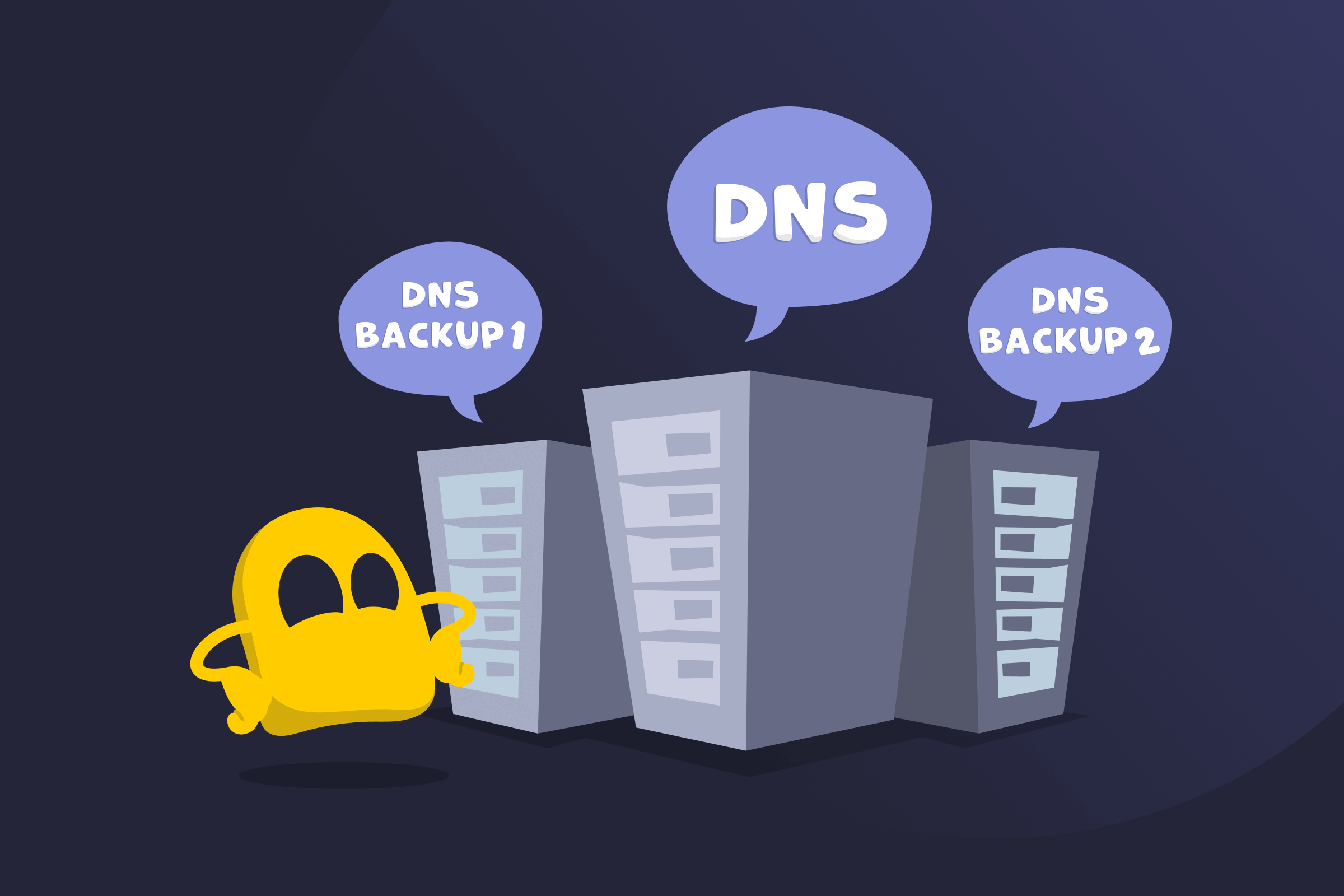DNS Redundancy

DNS Redundancy Definition
DNS redundancy is the practice of using multiple DNS servers to ensure that domain name lookups continue even if one server fails. If a DNS server becomes unreachable, another server with the same domain information can respond instead. This prevents downtime and keeps websites and online services accessible.
How DNS Redundancy Works
Network admins establish DNS redundancy by configuring a primary DNS server along with one or more secondary DNS servers. These servers are maintained independently and store identical copies of the domain’s DNS records. If the primary DNS server fails or becomes less responsive, DNS queries are automatically answered by one of the backup servers instead.
Aside from being a failsafe mechanism, DNS redundancy can improve performance. With round-robin DNS, DNS responses cycle through multiple IP addresses for the same hostname, helping distribute traffic across servers and reducing the chance that any one server becomes overloaded. Alternatively, DNS load balancing dynamically routes traffic to the server that currently has the lowest workload. Some networks also use anycast routing, which directs each user to the DNS server geographically closest to them for faster response times.
Benefits of DNS Redundancy
- Reduces downtime: Backup DNS servers prevent a single failure from taking websites or services offline.
- Improves performance: Traffic can be routed to the fastest or least busy DNS server, which can reduce latency and loading times.
- Protects against DNS attacks: Distributed DNS servers help absorb and reduce the impact of DDoS attacks.
- Supports scalability: Multiple DNS servers can handle higher traffic volumes as the network scales.
Best Practices for DNS Redundancy
- Use multiple DNS providers, like Cloudflare, Google Cloud DNS, or Amazon Route 53, to avoid relying on a single company or infrastructure.
- Enable anycast DNS routing so DNS queries are automatically sent to the closest and fastest available server based on user location.
- Keep secondary DNS servers synchronized with the primary server to prevent outdated records.
- Test failover regularly by simulating DNS outages to confirm backups take over smoothly.
- Monitor DNS performance and uptime with automated tools to detect slow response times or failures early.
- Apply rate limiting and DDoS protection to DNS servers to reduce the impact of traffic floods.
- Set short but reasonable TTL (time-to-live) values so changes can happen faster during outages without overloading DNS servers.
Read More
FAQ
DNS redundancy prevents a single DNS server from becoming a point of failure. If one server goes down, others continue answering requests, keeping websites reachable and helping defend against DNS-based attacks like DDoS.
DNS redundancy refers to running multiple DNS servers at a time, each with an identical database of domain names and addresses. If the primary DNS server fails, the backups can take over. DNS failover refers to switching traffic from a failed primary system (like a website or server) to a backup system by updating DNS records.
It can. Many redundant DNS networks use anycast routing, which reroutes users’ DNS queries to the DNS server nearest to them. This can reduce the physical distance the traffic travels, lower latency, and potentially increase a website’s response and loading times.

 45-Day Money-Back Guarantee
45-Day Money-Back Guarantee